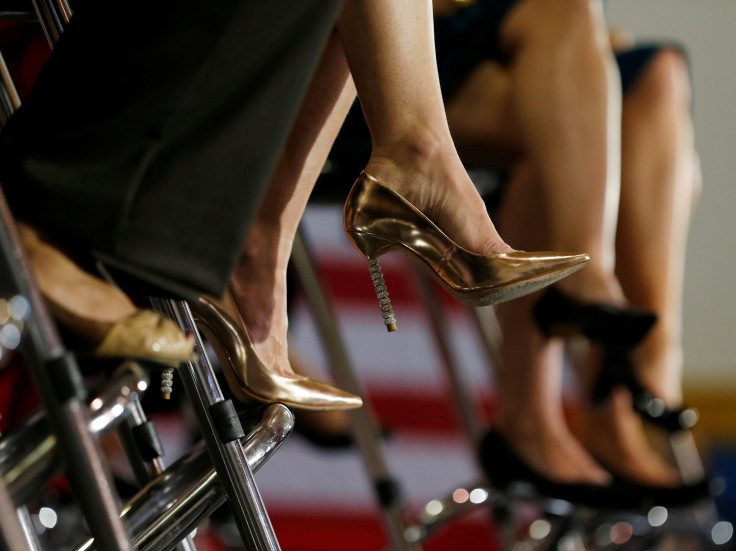Are High Heels Mandatory At Workplace? British Colombia Ends Requirement For Women To Wear Heels At Work

The Canadian province of British Columbia has amended its workplace legislation Friday that required women employees to wear high heels at work.
The press release issued by the government of British Colombia (BC) said: "the requirement is discriminatory as well as being a health and safety issue because they are dangerous."
It also said that: "high heel wearers face a risk of physical injury from slipping or falling as well as possible damage to the feet, legs and back. Footwear should be designed to allow workers to operate safely."
A private member’s bill was filed by BC Green party leader Andrew Weaver in March "designed to prevent employers from setting varying footwear and other requirements based on gender, gender expression or gender identity," as described in the bill.
However, the government did not acknowledge Weaver’s bill, instead they amended the footwear rules at the workplace under the province’s Workers Compensation Act in 1996.
Nicola Thorp, a receptionist residing in London, started a petition last month after she was sent home from work because she refused to wear high heels. The MPs in the country debated the discriminatory dress codes at the workplace. Following these incidents, the Petitions Committee published a report that contained testimony from more than hundreds of women who complained about the pain caused due to wearing high heels at workplace for a long span of time.
"In some workplaces in our province, women are required to wear high heels on the job. Like most British Colombians, our government thinks this is wrong. That is why we’re changing this regulation to stop this unsafe and discriminatory practice," BC premier Christy Clark said, referring to the recent amendment.
"A mandatory high-heel dress code is a workplace health and safety issue," Clark added. "There is a risk of physical injury from slipping or falling, as well as possible damage to the feet, legs and back from prolonged wearing of high heels while at work."
Amendments to the compensation act will "ensure that workplace footwear is of a design, construction and material that allows the worker to safely perform their work and ensures that employers cannot require footwear contrary to this standard," said the release.
BC has banned mandatory high heels requirement in the workplace. Hope ladies at major restaurant chains feel more comfortable now. 👟 pic.twitter.com/xx2WtWync3
— Jill Slattery (@JillSlattery) April 7, 2017
© Copyright IBTimes 2024. All rights reserved.












